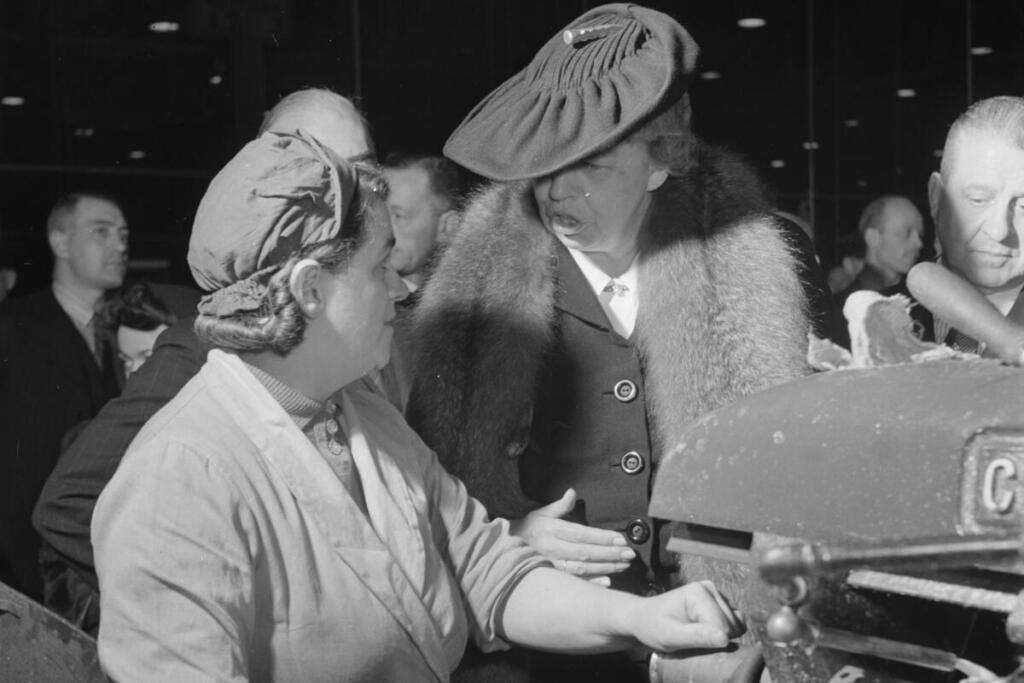Why Having a Career Plan is Important in 2024
Achieving Goals, Career Discovery, Career Enrichment, Career Transitions, Confidence, Get That Job, Leadership Coaching

Where do you want to be in 5 years? What’s your career plan?
If you are like many people, these questions may make you cringe. For people that are lucky enough to be in a role that they enjoy, making a career plan may not always be top of mind. Why change things when they seem good?
However, for people who are unhappy with their current situation, or considering a change in their career, they may think A LOT about what’s next. It can be difficult to imagine beyond the very next role, let alone a longer term plan.
“It takes as much energy to wish as it does to plan.”
Eleanor Roosevelt

Whatever your current situation, career planning is critical to your personal and professional growth, especially amidst the current unpredictable economy and dynamic workforce landscape.
Without a plan, career goals may remain out of reach.
A career plan will help you navigate your career with purpose, confidence and resilience and serve as a roadmap toward the achievement of your professional aspirations.
Throughout this article, we’ll dig into the many benefits of career planning and provide some actionable tips to help you get started.

What exactly is a career plan?
A career plan serves as a strategic roadmap for outlining your professional aspirations and delineating the necessary steps to attain them. Creating and maintaining a career plan is an imperative step in being intentional and strategic as you consider your career journey.
Crafting a robust career plan involves creating both long-term and short-term goals. Here’s what we mean:
- Long-term goals, spanning five years, ten years, or even more, provide a clear trajectory for your professional journey.
- Short-term goals, on the other hand, serve as actionable steps that align with and move you closer toward your overarching aspirations.
Integrating these short- and long-term goals creates a roadmap, guiding your career from a state of uncertainty to one of intentional advancement and fulfillment.
PSA: Career planning doesn’t have to be linear
Many may think that a career path or plan is linear and static. For some, it certainly can be! But consider the idea that career planning is a dynamic process.
Effective career planning does NOT necessarily mean that you must come up with a goal, create a roadmap for your professional journey, and always stick to your plan, no matter what obstacles or opportunities come up along the way.
Your life, and career, are constantly changing
Effective career planning can and should be fluid. It involves regularly reassessing your goals, adjusting your plans as needed, and being open to new opportunities that may come your way.
An effective approach is one that allows for greater adaptability in managing shifts in the workplace and personal life over time. In fact, you may go through the same process multiple times throughout your professional life as your priorities and needs change!
Read on to discover five compelling reasons why creating a plan for your career is essential for your professional success and personal growth.
Your career plan will guide your professional journey
Career management can look different for everyone, but most people find value in starting with a destination in mind to guide them on their professional journey.
Think about it: you can’t get somewhere if you don’t know where you are going!
Just as you would not get into your car and drive somewhere with no idea where you want to end up, it would be inefficient and unwise to make career decisions without knowing what direction you want to go.

Getting started
An important first step in career planning involves self-assessment, which can provide insight into your strengths, passions, values and purpose. This self-awareness can help you to explore and gain a better understanding of which career options and opportunities are worth exploring.
By understanding both your strengths and areas that you may need to develop, you can more clearly think through the necessary tasks and actions required to progress toward your career goals in an organized way. Read more about How to Map a Clear Career Plan here.
Considerations for your professional development
Having a clear vision for your career can also prompt important and deliberate consideration of whether additional education or training is necessary.
For example, enrolling in graduate school represents a significant commitment of both time and money. It’s crucial to ensure that such a decision aligns with your long-term career vision and contributes meaningfully to your professional goals.
Having a career plan ensures you are making informed decisions, intentionally navigating future career moves and proactively managing your professional journey.
Having a career plan will help you stay motivated
Throughout your career, it’s natural to experience fluctuations in job satisfaction. Changes in work responsibilities, organizational alignment, and managerial relationships can all impact how you feel about your current career.
When these feelings of insecurity and self-doubt arise, they may prompt questions about your purpose and satisfaction in your current role. Having a career plan can serve as a source of motivation amidst these uncertainties enabling you to continue building a successful career.
Even if these times of doubt lead you to pivot careers, knowing your priorities and long-term goals will help you weigh your career options and evaluate your next step. Having a vision not only helps you maintain focus on what success in your career means to you but also guides you on the actions to take and knowledge to acquire to continue progressing toward your future goals.
By outlining clear objectives and actionable strategies, a career plan instills a sense of purpose and direction.
Additionally, as you make progress toward your goals, the satisfaction derived from your achievements acts as further motivation to continue progressing along your career path toward your dream job or end goal.

No one will care about your career as much as you will
Smart companies enhance employee satisfaction by offering professional development programs that can help their employees develop skills, move into a higher-level position and progress toward their career goals.
Ideally, you will gain support from your company, professional networks or other connections to help you forge ahead in your career, but ultimately, this is your life.
You need to lead this process and, frankly, no one will care about whether you achieve a fulfilling career or land your dream job as much as you.
Career planning helps by mapping out a process of how you will take control of your future. It gives you the tools you need to be proactive in making sure you achieve your version of success.
Having a career plan reflects this forward thinking approach in shaping your professional future and moving toward your dream career.
A career plan can give you work-life balance
Engaging in career planning involves taking time to get clear on not only your career goals, but also your personal values.
This clarity enables you to prioritize what matters to you most both professionally and personally. Throughout this process you can set goals that align with these values and priorities in a way that complements each other and promotes balance between your work and personal life.
This is why it’s so vital to take your passions, values, and gifts into account when you’re exploring options for your career path. Every one of our members goes through a similar discovery process as part of our ALV Career Method.

A career plan can help you be flexible in an ever-changing world
“Just because you made a good plan, doesn’t mean that’s what’s gonna happen.”
Taylor Swift
While some may assume a career plan is rigid and unyielding, the reality is that effective career planning is an adaptive process.
Your career journey is constantly evolving. True career planning involves recognizing this fluidity and embracing it. It means that after you initially set goals, you then regularly reassess these goals, adjusting your plans as needed, and remaining open to new opportunities that arise along the way.
As your life changes, your chosen career from when you were younger may no longer be the right fit—and that’s ok!
By continuously developing and gaining new skills, you are making yourself more versatile in the job market, enabling you to shift between roles or industries.
With this flexible approach, you achieve greater agility and resilience in navigating the ever-changing landscape of the workplace and foster a fulfilling and meaningful life.

A career plan can give you job security
Over the past couple of years, the United States has witnessed a surge in layoffs, spanning various industries. This unsettling trend leaves many employees uncertain about the security of their jobs within their respective companies.
While potential layoffs may seem beyond individual control, having a solid career plan can empower you to be proactive and remain in charge of your career journey in a variety of ways.
Here are two key benefits of career planning and how they can empower you to remain resilient during challenging times:
1. Honing skills through ongoing professional development
A career plan often outlines actions related to developing skills and competencies that may help you advance in your chosen field or transition to other positions of interest.
This skill development can improve your marketability and, consequently, increase the likelihood of job retention and interest from potential employers amidst periods of volatility.
2. Maintaining your professional network
Networking often is a crucial component of career planning. Building relationships with peers in your industry or profession can provide helpful support during periods of uncertainty, whether through job referrals, emotional support, or other forms of assistance.
Don’t wait until you need a new job to start attending networking events. Continue to explore your interests and meet new people. You never know who may help you in achieving your next career goal.

A word on my career planning story
If you look back at my trajectory of roles and professional experiences spanning the last two decades, you might suspect a lack of direction in my career journey and the career choices I made along the way.
I started my career in retail, transitioned to HR, and ultimately found myself in the role of a Career and Leadership Coach. The progression may seem disjointed at first glance.
Honestly, if someone had approached me 20 years ago and inquired whether I envisioned myself as a Career and Leadership Coach, I would likely have been skeptical. This destination was definitely not in alignment with my vision of being a fashion merchandiser.
Does that mean I was a failure at career planning? Not at all!
Each pivot in my career, though challenging, stemmed from successful career planning.
Over the years, with my career plan guiding me, I have remained intentional about my objectives: my personal definition of what success means for me in my career, what skills I wanted to develop, the impact I sought to make, and the role I envisioned work playing at various stages of my life. And I am not done! I will continue to use this compass to drive me forward toward what is next!
Now that you know what career planning is and the importance of career planning in helping you to make progress toward your career goals, what are you waiting for? It’s time to take charge and start planning!
Not sure where to start? A career coach can help you craft your career plan and effectively set yourself up for success in grasping future opportunities and realizing your fullest potential.
Ready to take the first step? Book a free consultation call right here to learn if career coaching is right for you.


